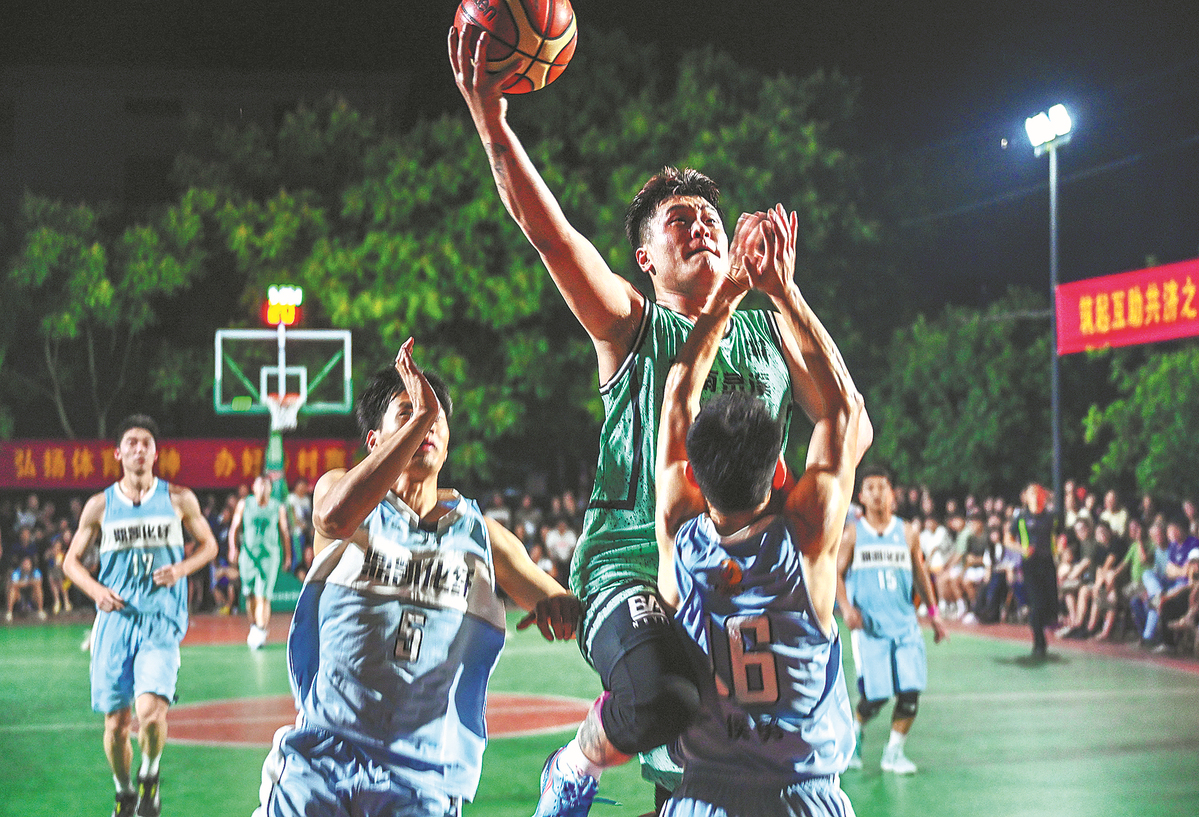Back to a time when sports was not ruled by Mammon


Editor's note: The annual basketball event, dubbed as Cun BA — Cun meaning village in Chinese, is held in Taipan Village in Guizhou province. The event has been held for decades where the basketball competition is part of a traditional Miao ethnic harvest festival, writes a veteran journalist with China Daily.
The telecast of English Premier League and US National Basketball Association games for the past about 20 years not only allowed the Chinese people to watch live sports competitions and tournaments of the highest level but also cultivated millions of fans in China.
So popular are the foreign basketball and soccer leagues that when villages in remote mountainous areas in Guizhou province planned their annual basketball and soccer competitions, they named the former "Cun-BA" and the latter "Cun-Chao".
Cun in Chinese means village and chao means super — the Chinese people translate English Premier League as "English Super League". The Guizhou sports competition organizers nicknamed the tournaments Cun-BA and Cun-Chao just for fun, without having the foggiest idea that the names would soon bring them in the spotlight.
Reports say that till early June, stories, photographs and videos of the ongoing Cun-Chao in Rongjiang county and the just-completed Cun-BA in neighboring Taijiang county had attracted more than 3 billion views. The number humbles the figures for China Basketball Association and China Super League, and could break the record of the foreign dream teams the villagers idolize.
The Cun-Chao and Cun-BA phenomenon has become a hot topic of discussion among people of different ages and genders. Many media organizations have sent their reporters to the counties, not to cover the games, but to find out why the grass-roots competitions have attracted widespread attention in such a short time.
The information the reporters have collected include certain unique factors. For example, local people love and support the competitions as proved by empty villages around the playground on the day of a match as villagers flock to the playground. The players are villagers working either in their villages or in enterprises in nearby places. Some travel back to their village from the cities they work in hundreds of miles away to participate in or watch the games.
No big social funding is involved so far. People playing for the village teams either pay for their own jerseys and shoes or boots, or seek the help of fellow villagers, who are willing to contribute something in order to uphold their village's honor, be it a small sum of money or donation in kind.
The villagers are very enthusiastic about attending the games as players, spectators, cheerleaders or supporters of their village team. The ongoing Cun-Chao tournament, for instance, has been drawing on average more than 10,000 spectators per game. The county has a population of less than 300,000.
Besides, few villagers go to the games empty-handed. Many carry with them freshly-picked fruits, home-made snacks or liquor. Dressed in their traditional, festive attire, they invite other visitors to share the food and drinks, and join them in singing and dancing before and after a game. Their hospitality has paid off, as statistics show tourist numbers have risen by more than 70 percent in the past few months.
Those used to seeing bad behavior, cheating, bribery and other forms of corruption in major competitions including Chinese soccer and basketball leagues will be surprised to know that no such incidents have been reported from Guizhou. Players here are dedicated to fighting for the honor of their villages, even though the prize for winners could be a cow, a pig, a chicken or just a water melon donated by the villagers.
Those who have watched the matches and attended the celebrations in the Guizhou counties agree that the atmosphere is more like a lively cultural festival than a do-or-die sports tournament. Given the atmosphere — relaxed and leisurely against the backdrop of a beautiful landscape — winning and losing become insignificant. Sports competitions used to be held in a similar atmosphere till a few decades ago. But after big money entered the realm of sports, sports started losing its real character, its sheen. Everything became about money. What's happening in Guizhou reminds fans of what we have lost.
Given that money and unnecessary regulations can ruin even Cun-Chao and Cun-BA, I pray that the evil eyes of Mammon and Hades don't fall on the Guizhou counties so people can continue to enjoy sports the way they should.
The author is former deputy editor-in-chief of China Daily.

































